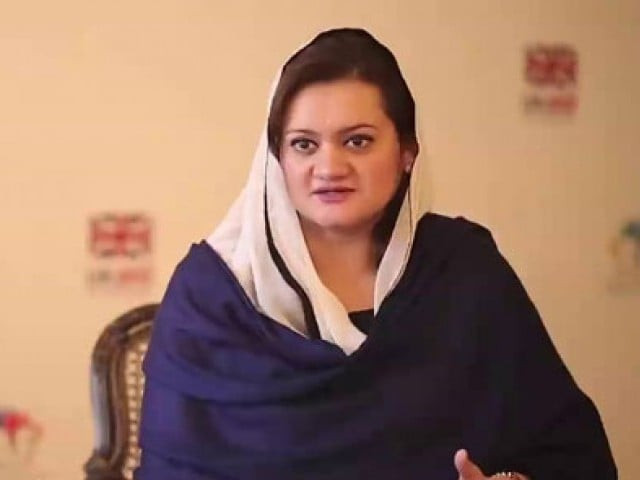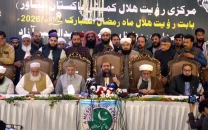One rogue DG caused ‘press gagging’ debacle: Marriyum Aurangzeb
Information minister reveals details of fact-finding inquiry regarding draft law to curb print media

Marriyum Aurangzeb. PHOTO: FILE
This detail, according to Minister of State for Information, Broadcasting and National Heritage, Marriyum Aurangzeb, comes straight from a fact-finding team set up to look into the drafting of an ordinance to put curbs on the print media.
Speaking at a news conference on Tuesday, she said that Internal Publicity Wing Director General Nasir Jamal was solely responsible for the debacle.
The minister said that the director intentionally concealed facts from senior staff and presided over two meetings on the subject in his office and gave instructions for the preparation of the draft to replace the PCP Ordinance, following which three letters were also issued to the PCP.
She said that the PCP chairman had responded to the letters by informing Jamal that before initiating any amendments in the law, the council would have to consult its stakeholders which would take some time. The DG did not even bring this response to the notice of the secretary or the minister.
She said that the willful concealment of facts and the attempt to drive a wedge between the media and the government was extremely regrettable and everybody deplored this act. She said that the government did not believe in gagging the media.
She said what Jamal did was an inexcusable act and now a proper inquiry would be held against him under the Government Servants Efficiency and Discipline Rules 1973 to find out why he did it.
Freedom of expression: Official responsible for press law alarm identified
Explaining the background of the episode, she said that during a briefing of the PCP after she assumed charge of the ministry, she expressed her desire to facilitate the media and resolve their difficulties in dealing with the ministry, while floating the possibility of merging the office of the Audit Bureau of Circulation, Press Registrar, and Press Council of Pakistan to make it a ‘one-window operation’ for the media.
The minister said that one of the departments in its working paper had also corroborated what she had said. “No formal orders were issued for drafting any legislation or ordinance to replace the PCP Ordinance,” she added.
The minister, while quashing some reports suggesting that the government really wanted to promulgate the new law and only walked back after the media backlash began, explained that for the enactment of any new law, a proper procedure had to be adopted with all the relevant developments recorded on the files and approvals from authorities sought before seeking the input and approval of the Ministry of Law. “None of that happened in this case,” she added.
She urged the media to avoid speculative reporting which can prove embarrassing for reporters and their institutions.
Marriyum said that as minister for information, she represented the media as well and was wedded to the cause of freedom of expression. “My responsibility is also to improve government-press relations, which is only possible through measures designed to strengthen freedom of expression,” she added.
The minister claimed that the democratic government of PML-N had always stood for the independence of media and could not think of placing any curbs on the press.
She also said that the government was working on legislation for the welfare of journalists and ensuring a safe working environment for them, in consultation with all the stakeholders, besides taking steps for the institution of a wage award for media persons. These steps, she asserted, were aimed at facilitating the media and upholding freedom of expression.



















COMMENTS
Comments are moderated and generally will be posted if they are on-topic and not abusive.
For more information, please see our Comments FAQ